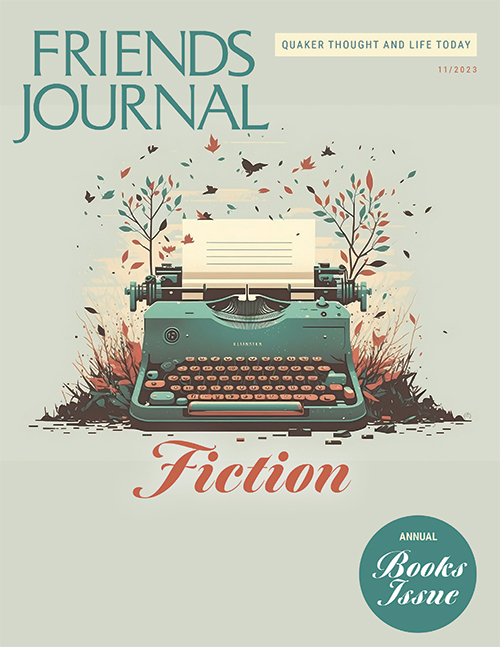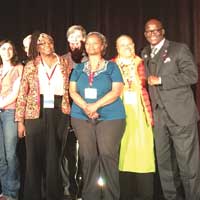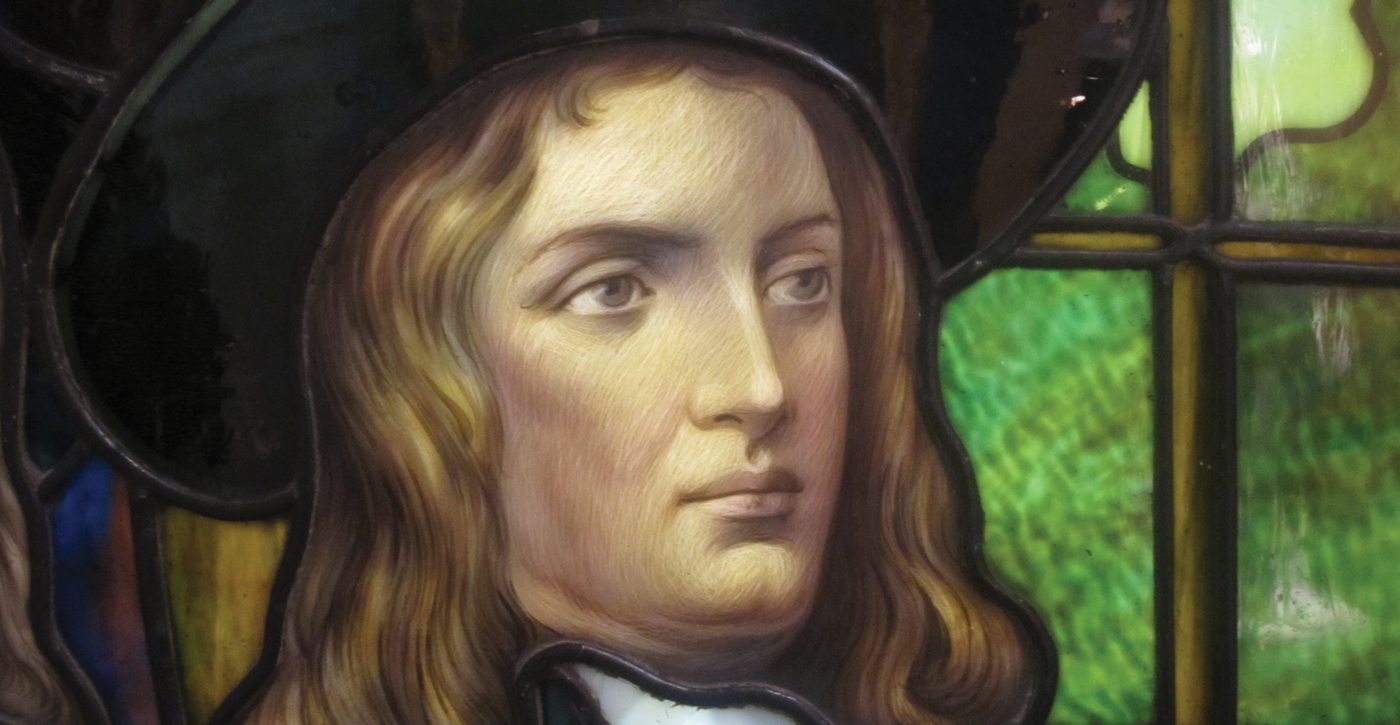I remember a friend once telling me if you do something once, it’s a weird thing you do. Do it again, it’s a trend. Do it three times and it’s a tradition everyone expects you to repeat till the end of time. This is Friends Journal’s third November fiction issue in a row. I guess this is a thing we do now.
It’s not immediately obvious that we should be in this game. Quakers have had testimonies against reading made-up stories. They’re a waste of time. We’re “Friends of the Truth” after all, a concept taken quite literally and sometimes to extremes by early Quakers. Colonial Pennsylvania Quakers half-heartedly conducted a witch trial (popular legend has it that after a defendant admitted to flying on broomsticks, William Penn dismissed the case with the argument that he knew “no law whatever against it.”). A century later, abolitionist traveling minister John Woolman tried to shut down a magic show in his home town of Mount Holly, N.J., for encouraging superstitions.
But sometimes fiction reveals deeper truths that simple reporting can’t touch. Good storytelling can produce powerful parables, simple stories that stay with us and guide us. And with a touch of magic, it can hint at the mysteries of worship.
Annalee Flower Horne starts this issue out which is fitting considering they, along with Hilary Bisenieks, pitched the original idea of Friends Journal devoting an issue to fiction in a tweet to us in 2021. Annalee’s story takes place in the 1777 countryside around Valley Forge, Pa., and has star cameos from both Alexander Hamilton and George Washington. But the protagonists are Quaker needleworkers who have found a supernatural technique to imbue the meetinghouse’s carpet with useful features such as background noise removal and enhanced voice isolation. That would sound like a strange literary conceit to anyone who hasn’t sat in a gathered meeting deep into worship. But those of us blessed by such occurrences know that sounds do indeed travel differently in such a venue.
Historical fiction continues with Michael Soika’s look at the hard lives of Appalachian coal minersin the early decades of the last century. Hunger and the daily threat of tragedy cast a pall over the families. A helpful Quaker plays a small but critical role in a story taken from real work done by organizers from American Friends Service Committee and based on true events that happened in Michael’s own family.
A modern Friend appears in Vicki Winslow’s tender story of a Quaker minister working through grief and getting an unexpected lesson in open doors and ready food. Another contemporary story comes from Brent Bill, whose tale revolves around a grumpy minister whose surprise comeuppancefeatures a lesson in forgiveness and the power of laughter. Another difficult Friend is at the center of Lynn Gaziz-Sax’s story of a teenager trying to understand her ailing Quaker grandmother. And lastly we get a more timeless parable from Eric Sabelman about the human costs of war.
Our online edition has three more compelling stories, from Anne E.G. Nydam, Ken Gibble, and Herb Haigh. It also has an exclusive Friends Journal interview with award-winning author Alice Elliott Dark, whose critically acclaimed 2022 novel, Fellowship Point, features two main characters hailing from old Quaker families.
This issue also includes an expanded book review section, featuring 14 titles we think Friends today should know about. From thoughtful perspectives on building community to examinations of little-known historical events and three timely titles on Israeli–Palestinian issues, we hope you find something worthy of the top spot on your want-to-read list.







Comments on Friendsjournal.org may be used in the Forum of the print magazine and may be edited for length and clarity.